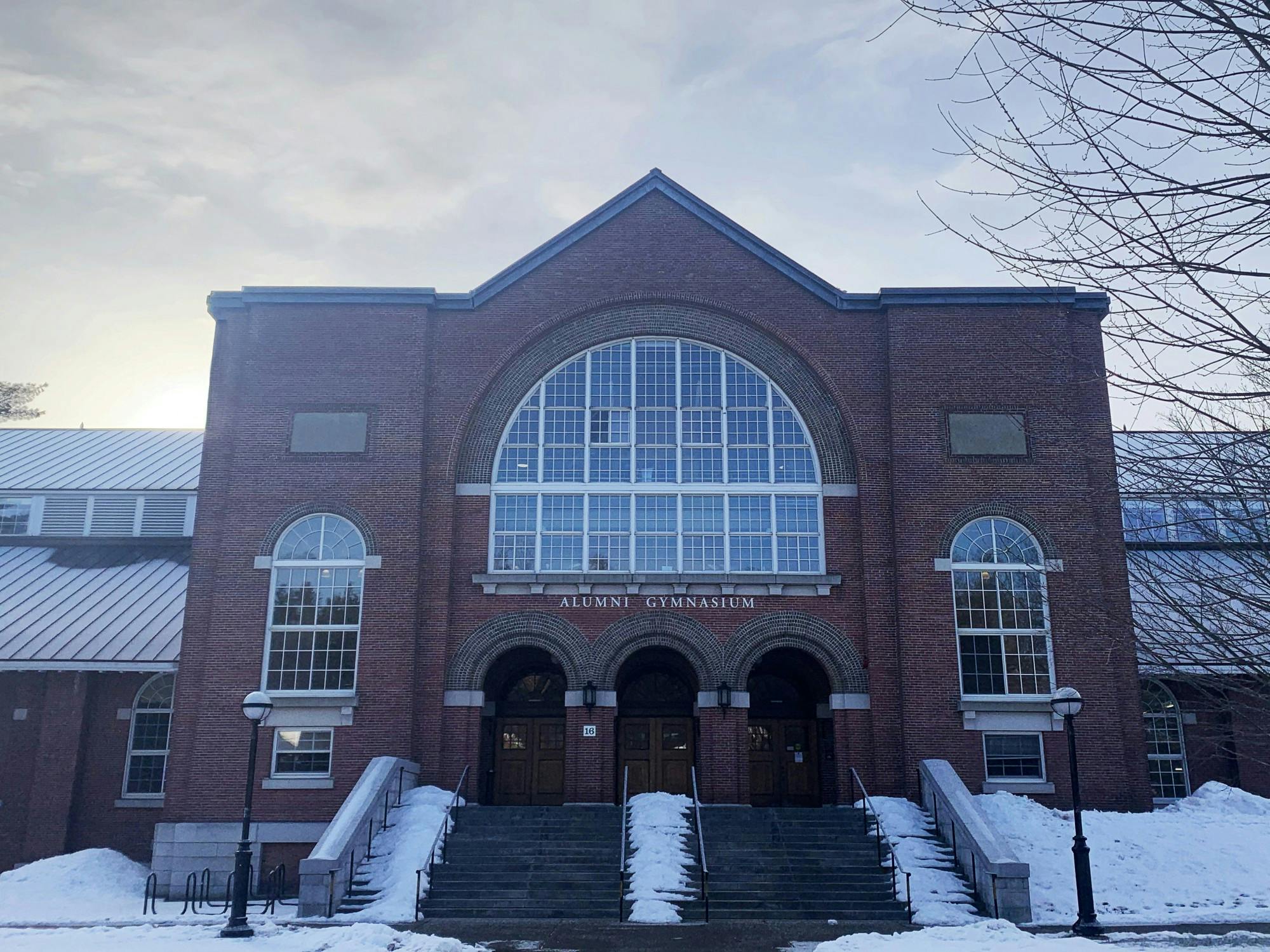As the winter term gets underway and the omicron variant surges nationwide and on campus, Dartmouth’s athletics department has continued to reevaluate restrictions placed on athletic competition for the season.
Until at least Jan. 18, depending on the continued evolution of the College’s broader COVID-19 policies, the athletics department will restrict the number of spectators at events.
Within that time frame, Dartmouth’s athletic events will be closed entirely to the general public. For the Dartmouth community, a limited number of pre-approved guests of student-athletes and coaches will be placed on a “pass list” for entry, with the specific number allowed differing based on the capacity of the relevant venue. All guests will be required to show either proof of vaccination or a negative PCR test recorded within 72 hours of the event.
Eleanor Zwart ’22, a member of the women’s swimming and diving team, said that each athlete is allowed four spectator invites to each meet.
With respect to the protocols athletes themselves must follow, interim athletics director Peter Roby ’79 said that the requirements have remained relatively unchanged from the fall term.
According to Roby, a group made up of various people within the athletics department — himself, head athletic trainer Ben Schuler, senior athletics director for varsity sports Tiffani-Dawn Sykes and executive associate athletics director Richard Whitmore, among others — is primarily responsible for crafting these policies in conjunction with the College.
“We’re all in constant conversation with each other about the status of our athletes and teams, and everybody's working in good faith,” Roby said. “The priority is to try to help keep the seasons alive so that the athletes can play, but obviously, we’re going to do that in a way that’s as safe as possible.”
The College’s isolation length policy for athletes who test positive for COVID-19 remains unchanged at 10 days, even as the broader College policy was recently updated to conform to the new Centers for Disease Control and Prevention guidelines of five days. Zwart called the decision to maintain stricter protocols for student-athletes “especially frustrating.”
“Especially because the winter is our main competition season, missing 10 days now is a bigger deal than it would've been missing 10 days in the fall,” Zwart said.
The impact of that 10-day quarantine period has already been felt by some teams, such as men’s basketball, according to starting guard Brendan Barry ’20. On a recent road trip to face Cornell University, the team was only able to travel with 13 players.
“Whether you’re symptomatic or not, it’s tough to come back from 10 days of not playing and not going up and down to right away jumping right back in the swing of things,” Barry said. “It’s 10 days, as of now, but we’re hoping it goes down to five.”
Although the athletics department initially stated that all events would be held as scheduled, that has already proven to be more difficult than anticipated, with various events scheduled for this weekend already postponed or canceled.
On Dec. 20, the department canceled the Dartmouth Relays, an event scheduled to take place this weekend that usually hosts about 2,000 athletes. On Monday, the men’s basketball team’s tilt with Yale University, originally scheduled for this Friday, was pushed back due to “COVID-19 concerns and safety protocols within the Yale men’s basketball program.” On Tuesday, the men’s hockey and women’s basketball teams’ upcoming games for this weekend were also postponed — this time due to concerns arising from the Dartmouth teams’ program, according to the announcement.
Barry expressed doubt that the non-conference games will end up being rescheduled, as well as concern over how in-conference postponements will affect the season.
“I feel like any athlete in the Ivy League should be worried because of the league’s propensity to show that athletics is not a priority, especially over academics or anything like that,” Barry said. “I think there definitely is cause for worry, but, at the end of the day, we just have to play the games when they come and prepare like we’re going to play every game.”




